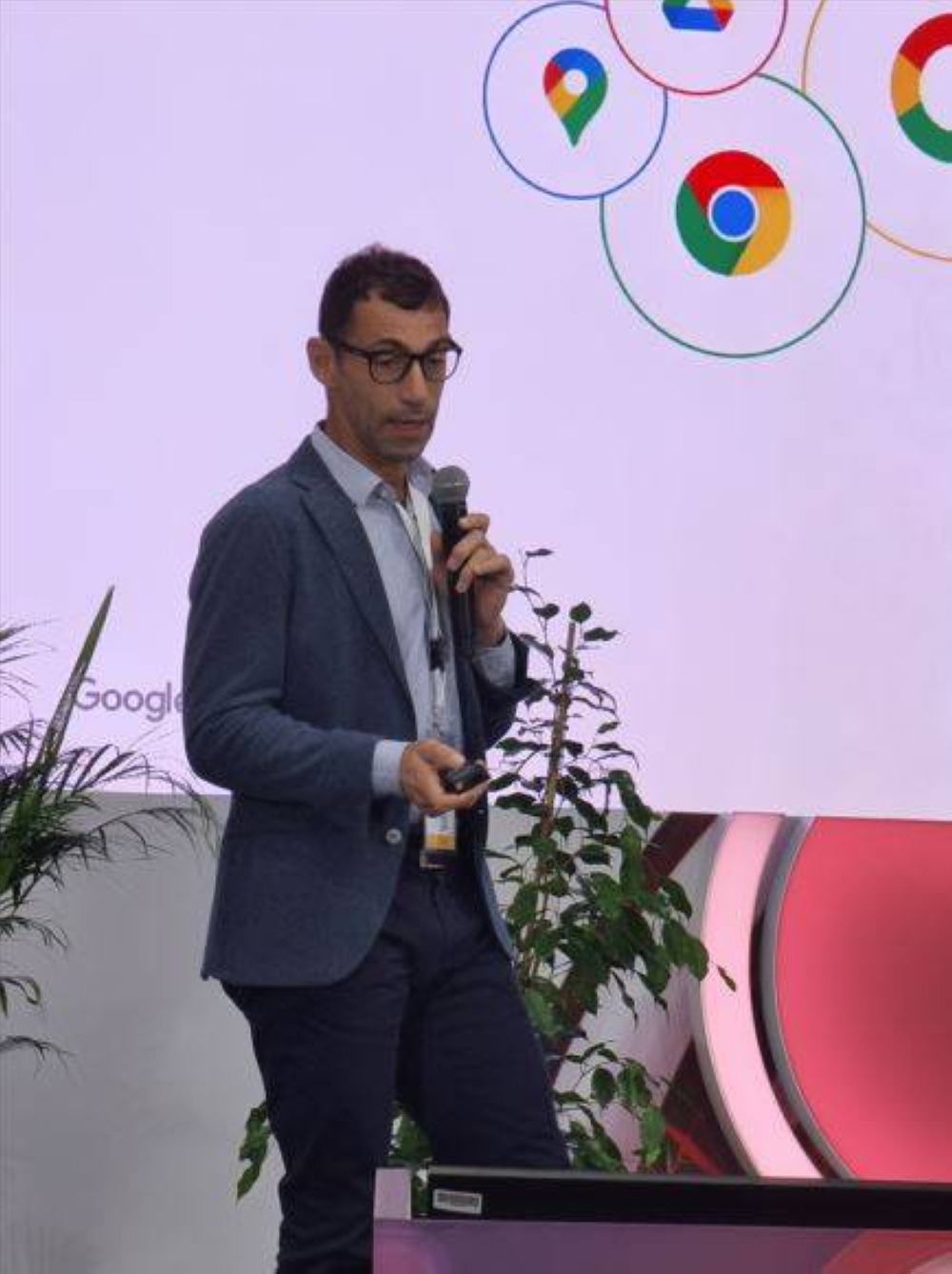Qatar
Google’s AI director unveils innovations for sustainable cities
pls carry with other Smart City Expo stories

Alessio Bagnaresi at the 3rd edition of Smart City Expo Doha yesterday. PICTURE: Joey Aguilar
An industry expert highlighted the importance of using cutting-edge technology and artificial intelligence (AI) to transform urban landscapes for sustainability, creating safer, more efficient, and environmentally friendly cities.
Speaking at a session at the 3rd edition of Smart City Expo Doha 2023 yesterday, Alessio Bagnaresi, director of AI and Advanced Analytics at Google Cloud EMEA, said transportation is one of the key pillars in their strategy, underscoring the company’s two-decade-long endeavour of collecting satellite imagery data to enhance technologies like Google Maps and Google Earth.
“(It is) super important to figure out over the past 37 years how cities are evolving, and by means of this scale and by applying AI, you can figure out if there is deforestation, if there is flooding, if you are constructing in areas which are risky, considering the climate challenges we are facing nowadays,” he said.
Themed “A World of Data: Connecting People, Elevating Lives”, Smart City Expo Doha 2023 is under the patronage of HE the Prime Minister and Minister of Foreign Affairs Sheikh Mohamed bin Abdulrahman bin Jassim al-Thani and organised by the Ministry of Communications and Information Technology in collaboration with Fira Barcelona International.
The two-day expo underscores the critical role of data in shaping future cities.
Citing Google’s commitment to addressing urban challenges, particularly in transportation, Bagnaresi’s presentation explored Google’s sophisticated approach to city development that focuses on three strategic areas: improving infrastructure decision-making, assisting city executives in enhancing city performance, and reducing carbon emissions.
He underlined the integration of sensors and computer vision technologies in cities to monitor and address several issues that affect cities across the globe.
Bagnaresi showcased the successful implementation of predictive maintenance through computer vision in Memphis, where 30,000 images collected from public transportation cameras facilitated real-time predictions of potential road problems.
“We were able to really make predictions around potential problems on the road like potholes and cracks in wind turbines and everything happens in just seconds. So the ability again to process a huge amount of data in almost real-time, is what makes these cities digital,” he said.
Bagnaresi cited the ‘Greenlight Project’, another Google initiative, which aims to minimise emissions at intersections by co-ordinating traffic lights to ensure a smoother flow of vehicles. He also shared promising results from the pilot programme, revealing a 10% reduction in pollution across 12 cities and 17 intersections, including Abu Dhabi.
He cited Google’s efforts in wildfire and flow detection, demonstrating the company’s commitment to leveraging AI and advanced analytics for the benefit of smart, sustainable cities.

